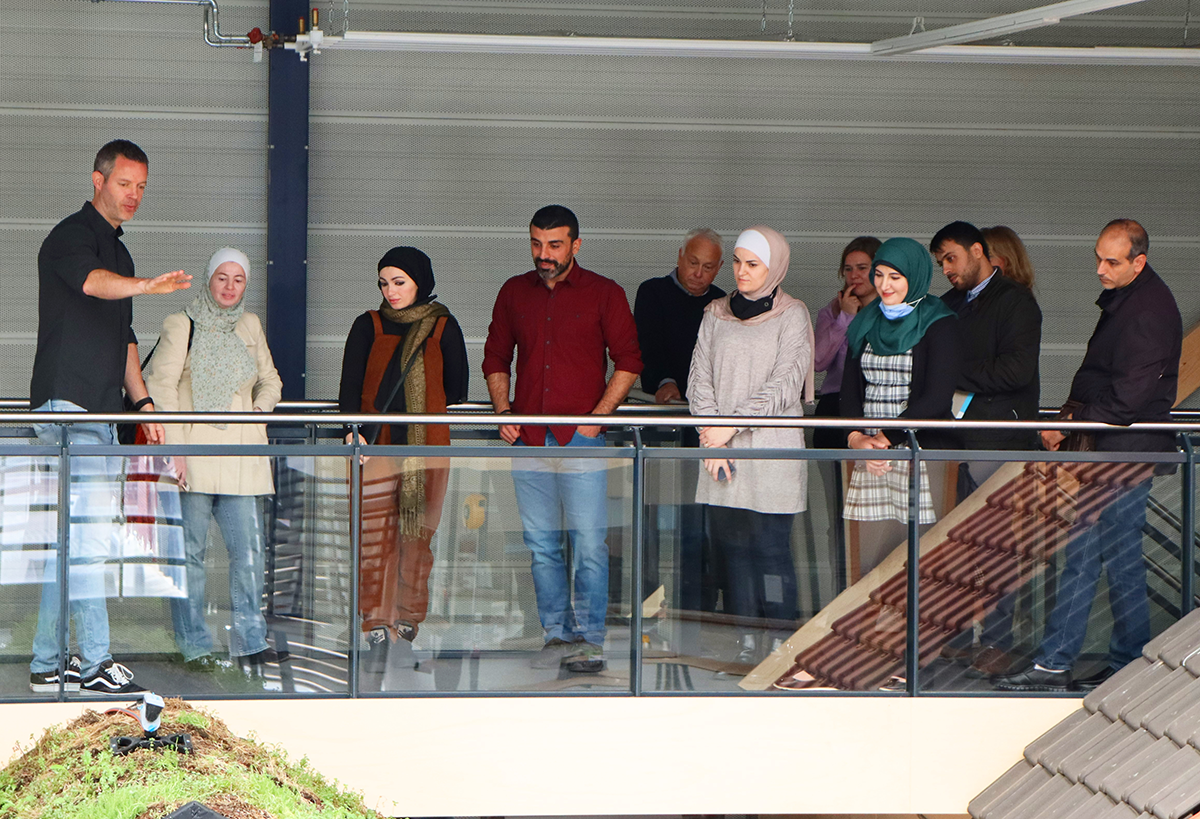Inclusive Technical and Vocational Education and Training (TVET) is crucial to ensuring that disadvantaged groups, such as migrants and refugees, can easily transition to decent work. With this in mind, The Hague Academy developed a training programme with a special focus on improving access to TVET for refugee students. As part of the project, participants from the teaching staff of Luminus Technical University College (LTUC) in Jordan came to the Netherlands for a one-week study visit. The educators learned from Dutch experiences with TVET and now hope to tailor their courses to address the barriers faced by refugees. This way, they aim to prevent dropouts from students coming from these marginalised backgrounds.

Although skills-development institutes are open to everyone interested in learning a relevant skill for their livelihoods, marginalised groups still often find themselves unable to fully capitalise on the opportunities these institutions offer. This is the case for migrants and refugees, who face numerous barriers that get in their way to learning much-needed skills to help their transition to host societies. These barriers can range from access to funding and learning materials to the same institutional help that non-marginalised groups are given.
Applying Inclusive Education in Jordan
As two LTUC staff, Shatha Nawaf Khasawner and Noor Aqqad explain, some of the specific challenges present among refugee students are: lack of computer skills, a low level of English, lack of IT equipment to follow courses, no access to easy transport and limited job opportunities to sustain themselves or their families, even for informal, part-time jobs that coincide with their studies.
Although LTUC’s educational model is built on strong labour market linkages, offering its students skills-based training to transition to the labour market, refugee students face higher drop-out rates than their Jordanian-born counterparts. Realising the barriers refugee students face, both Shatha and Noor still urge and hope for their students to complete the programme. As they explain, national laws make it difficult for most refugees to find employment:
“At the training centre, we cannot change the laws, but in our capacity, we can give them the opportunity of going through the TVET path and allow them to maybe start their own business or work in professions that don’t require citizenship or residence permits, per se.”
During their study visit in the Netherlands, both Shatha and Noor picked up on tactics and best practices that really emphasise inclusivity. That means inclusive practices that would allow their students to thrive. One of them is understanding the barriers students face, and offering learnings that both take these barriers into account, but are also designed to circumvent these barriers in the future.
That is why both educators focused on not just inclusivity, but also entrepreneurship as a key learning to take back to Jordan. As they put it: with little hope of transitioning normally into the job market, many students from refugee backgrounds are easily dissuaded and risk dropping out of the programme. By providing them with a more holistic and entrepreneurial skillset, LTUC hopes to motivate these students to follow through with the programme with an outlook for a brighter and self-sufficient future.
Long-Term Commitment
Acknowledging the barriers refugee students face and making a tailored lesson plan are crucial steps in preventing drop-out among refugee students. Both Shatha and Noor understand that this is the beginning of a longer process, and emphasise the necessary follow-through LTUC faculty need to take:
“Building the mindset, behaviour and skills students need to be successful entrepreneurs takes time, and is difficult to build within two months. You need to work continuously. And indeed, we are looking at the support system for students from a different angle now”
From making scholarships understandable and accessible to implementing a full-time faculty mentor or peer-to-peer mentorship programme, LTUC faculty are devising new ways to assure an inclusive educational environment for all their students.
__________________________________________
The Orange Knowledge tailor-made training ‘Participatory and inclusive TVET education’ was developed by The Hague Academy, in partnership with the Jordanian organisation Mastery for Training and Business Development. The programme is funded by the Dutch Ministry of Foreign Affairs.
Related courses
We offer a diversity of courses throughout the year. Here are several other courses you might like.

